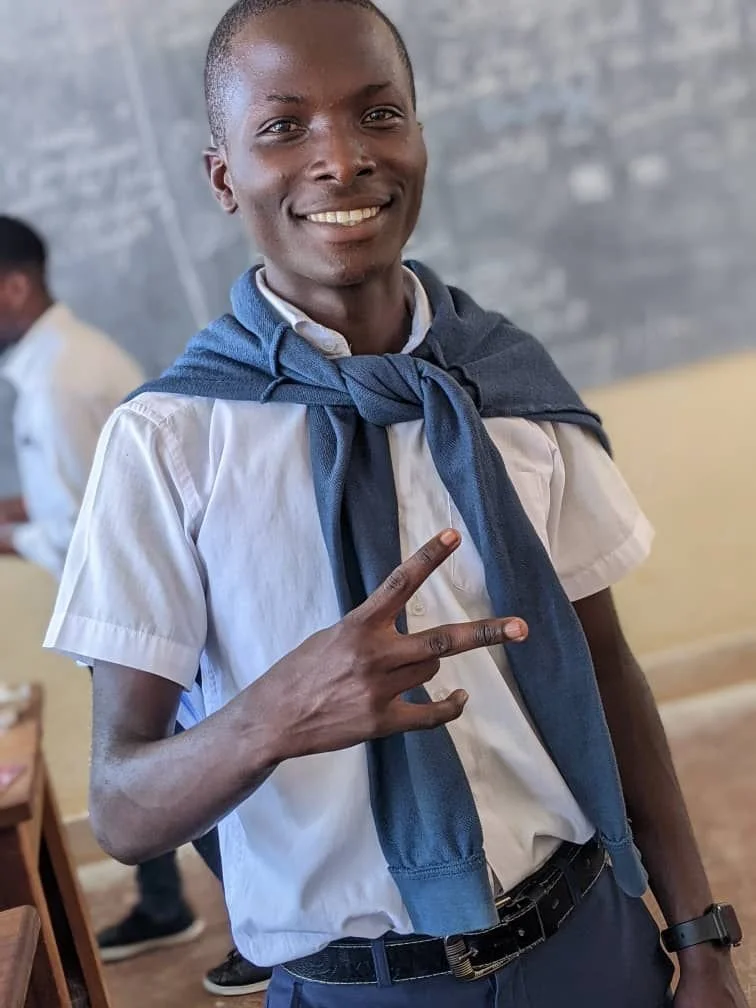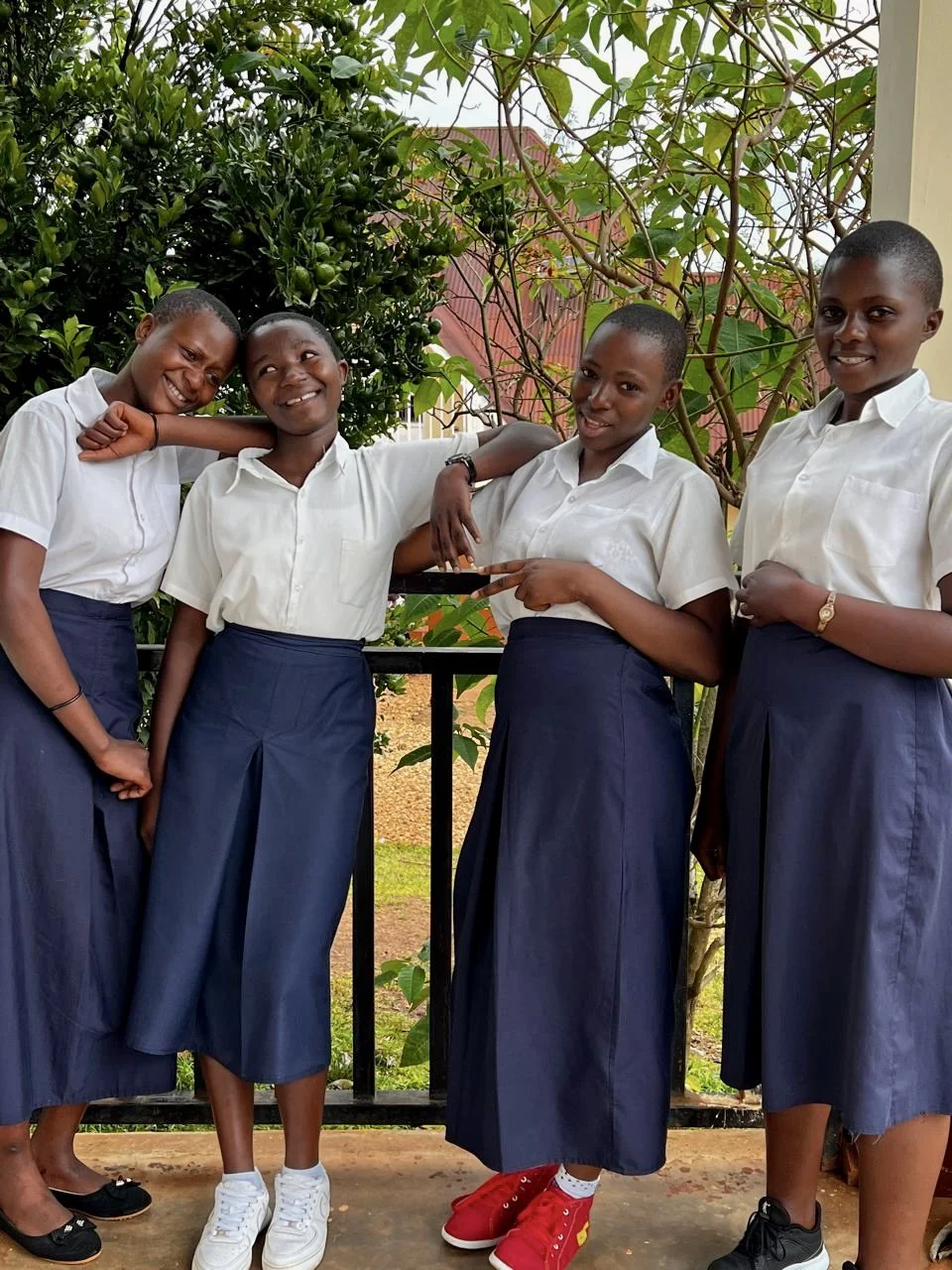Was there a moment in your life when you felt seen for who you might become? A teacher or parent or friend who gave you a word of encouragement, that in hindsight was a turning point for you?
When Amani Matabaro, our Founding Director and the visionary leader behind the Congo Peace School’s curriculum, learned the 2025 results of the national exams for the Congo Peace School students, he had a call with many of this summer’s graduating class. “I told them, some of you got better scores than I did when I took this test!” he said. “You could do more in the world than I have!” (A recent Harvard Fellow, speaker of many languages, trained in several studies around public health, pedagogy, and peace, Amani is a marvel in his own right.) I wonder, for how many of those students, that message will sink in and inspire them to overcome the obstacles that this world has unfairly placed in the way of the people of Congo.
I marvel at the mission of this school and its success thus far, thanks to your partnership, and the commitment of the teachers, staff, students, and community: to serve the poorest and most in-need children in that region, which, in the world, are some of the most overlooked and underserved children on the planet. 100% of the students in both primary school 6th grade and secondary school 6th grade (12th grade in the U.S.) passed, many with honors, while, we are sad to report, a majority of the students in the surrounding schools failed.
These are kids who sometimes take care of themselves when they’re not in school, orphaned and living with relatives who can barely afford to feed their biological children, let alone a niece or nephew.
These are kids who, with your support, now not only feel seen and loved, that their story matters, but also that their potential and possibility for learning and being leaders is endless.
Amani shared his thoughts in a brief video here, and, with the new school year (2025/2026) having started on September 1, sent a couple videos of the students stepping outside the classroom to sing and dance, including our preschool kids, supported by our amazing partner, Nest Global.
This, in the midst of war, where the campus is a haven of peace. (Scroll to the end of this post to read an excerpt from an earlier post about the safety protocols the school has instigated to best protect the students and staff as they decide each day it is safe to open the school.)
Amani highlighted one of the graduating class of 2025, Cubaka Germain, a great soccer player, Amani notes (Amani a proud footballer himself). Cubaka was an orphan who was in the Educational Assistance Program we started several years ago, before the CPS was built, with the support of many of you, our longtime partners, with Jewish World Watch, and with years of support from our community in Rhode Island. We started paying for Cubaka’s school fees in elementary school, before he transferred to the Congo Peace School.
Cubaka in primary school, before the Congo Peace School was built.
He just scored 76% on the national exam. (In terms of the U.S. GPA standards, this is graduating with honors.)
Cubaka, Congo Peace School Class of 2025
Denise Bora was also part of the Education Assistance program, and is now a brilliant high school graduate. She is pictured here alongside her fellow classmates, from left to right: Denise Bora (70%), Nzigire Pascaline (70%), Cynthia Hamuli (she graduated last year) and Ciragane Bitakuya Divine (75%).
As Amani noted in the video, these children are amazing, and they did not accept war to take their dreams and hopes away.
In other Congo Peace School news, Blessing, one of Amani’s daughters, risked returning to eastern Congo to finish her university degree in agronomy, and is helping with the farm that serves the school as a teaching farm and providing some sustenance to support the meal program (though we need to expand on that in the coming years). One way to help keep kids in good health, especially to get a dose of potassium? Bananas. Blessing saw how the Chinese construction workers building the road had dumped dirt on the hilly portion of the farm, and suggested using the organic fertilizer created by the farm animals and compost to grow bananas for food production.
I hope, in the midst of so much terrible news of war and division, that these stories give you hope that a different path is possible. Peace within ourselves, within our relationship to each other and the planet, is possible.
Thank you for investing in this vision that is already becoming a reality in the lives of this community. Thank you for being part of the message to these students that others, people they have not met, believe in their beauty as humans and potential to thrive and lead, in whatever way that suits their unique talents and heart for the world. Asante sana!
To read more on the latest on the war, be sure to subscribe to the DRC bi-weekly news monitor from PAEMA, trusted friends in peace work.
In gratitude,
Rebecca, with Amani Matabaro
Rebecca Snavely
Executive Director, Action Kivu
(Below: the repost regarding the school's security protocol during war)
Déo, the CPS Secondary School Principal, shares how the Congo Peace School remained open most of the school year, when so many other schools shuttered for weeks due to the war.
“We have been shutting down only based on security assessment with our senior larger management team with guidance of the school founder, Amani Matabaro, who has experience with issues such as international humanitarian law, human rights, human and personnel security, and humanitarian ethics—it is not easy trying to manage all of these issues at this time.”
The Peace School posted banners with the information that read: “Schools, hospitals, and places of worship must be protected even during wartime. It is an obligation of international humanitarian law” both inside the campus and on the outside wall for anyone passing to read.
Deo continued, “This war deeply disrupted us at the school and community levels, but we have been learning many lessons from it, including the resilience mechanism that we are developing each day. For example, every day before going to school we have to find out about the security situation in the area. There are many questions to ask: Is it safe to walk to school? Are the teachers and students safe? Is the school safe? And even when we would begin the school day, we were not sure how it would end. Such uncertainty creates constant fear because of the ongoing insecurity in the region.
“With the students, despite sometimes hearing gunfire from some corners of the campus, we had to remain courageous. We always tried to understand the situation before making decisions: either to let the students and staff leave school and return home before the usual time, or to keep them in class until the end of the day. The wall around the school has been very helpful in terms of child protection during these difficult moments.
With our Congo Peace School Founding Partner, the Dillon Henry Foundation





